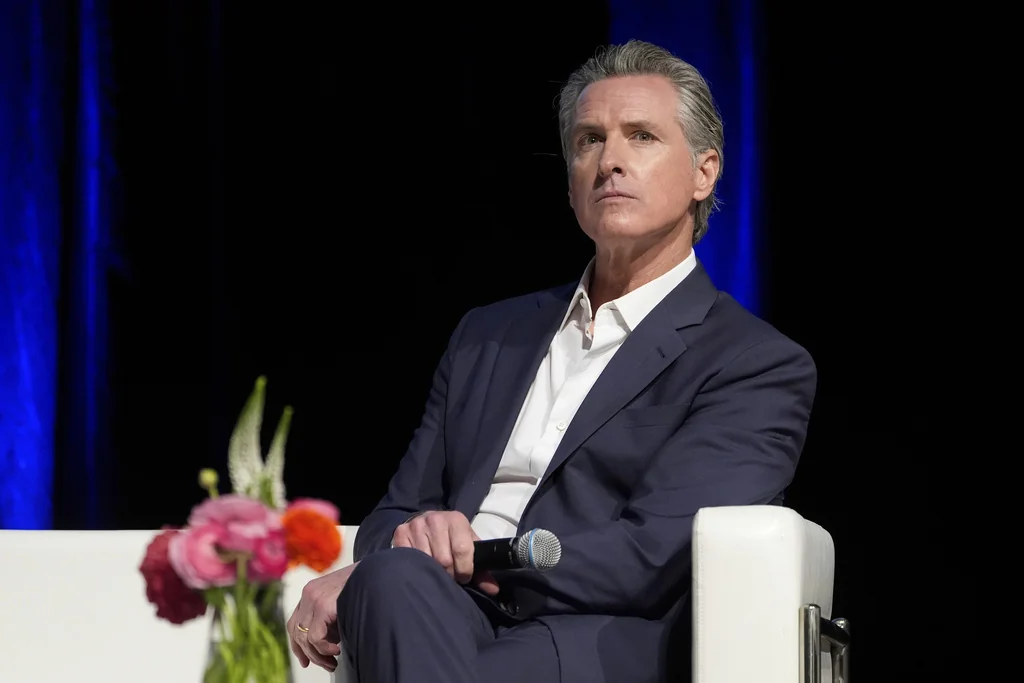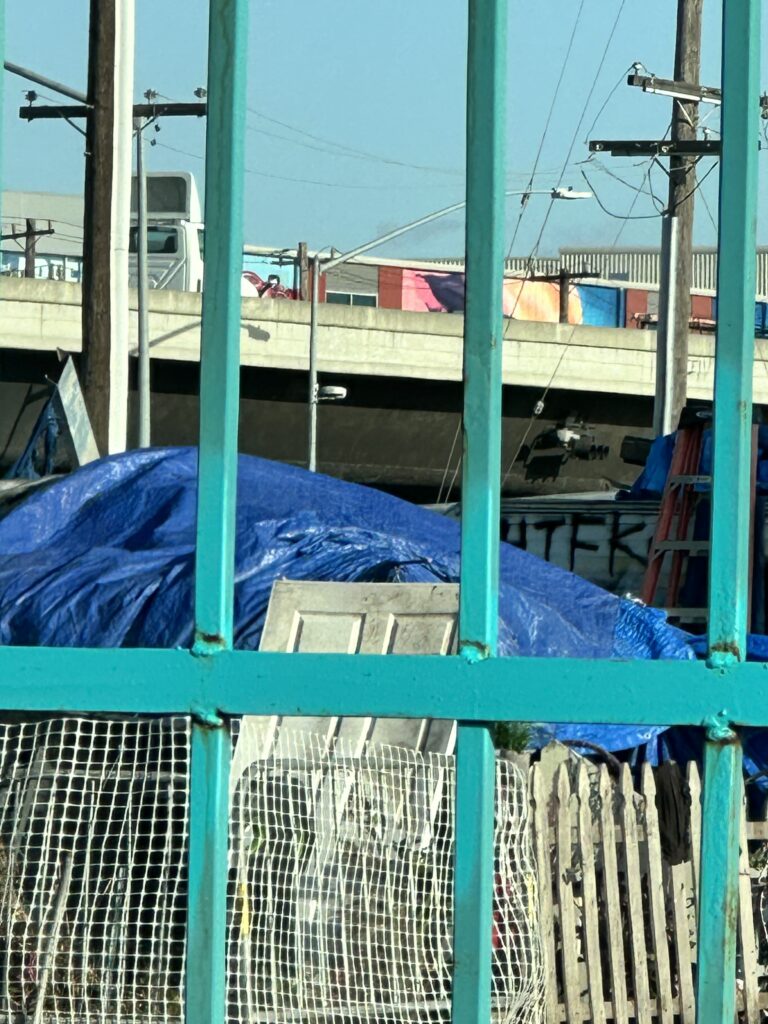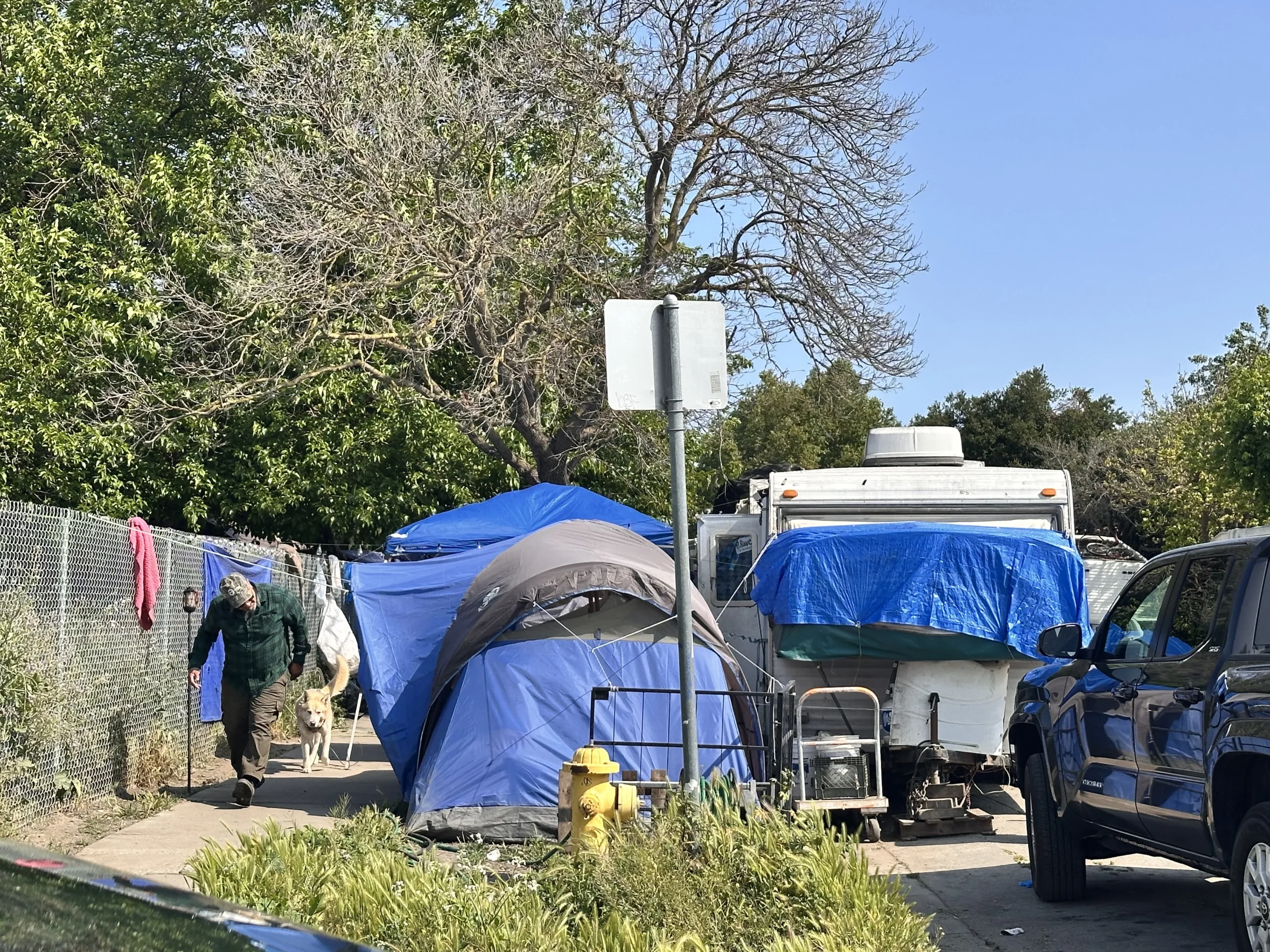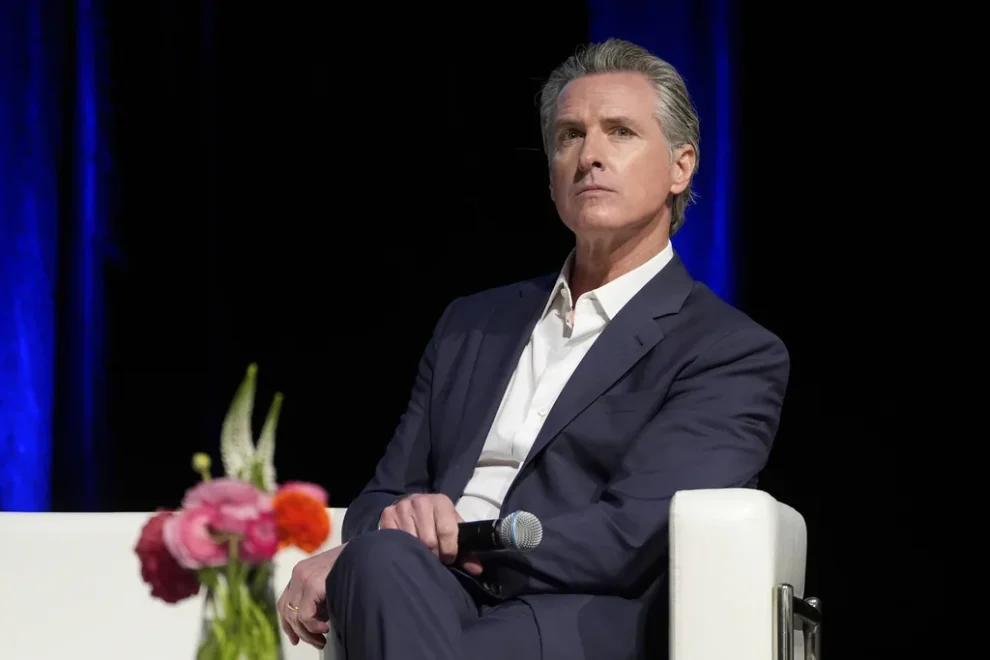Gov. Gavin Newsom (D-CA) on Monday called on hundreds of California cities and municipalities to ban homeless encampments on sidewalks, bike paths, and other public property, increasing pressure on local governments to follow the state‘s lead.
His office released a model for a local ordinance that municipalities can adopt to make encampments illegal and clear existing ones.

The template would prohibit camping for more than three days, creating a semipermanent shelter, or camping in a way that blocks sidewalks. It also requires cities to “make every reasonable effort” to offer shelter or housing and give homeless people at least 48 hours’ notice before clearing an encampment.
It is a very different approach from the traditional liberal one, which has been to emphasize government housing and treatment but not criminalize homelessness.
“There’s nothing compassionate about letting people die on the streets,” Newsom said. “Local leaders asked for resources — we delivered the largest state investment in history. They asked for legal clarity — the courts delivered. Now, we’re giving them a model they can put to work immediately, with urgency and with humanity, to resolve encampments and connect people to shelter, housing, and care. The time for inaction is over. There are no more excuses.”

Cities and counties are not forced to pass the ordinance that Newsom is proposing, but the governor is enticing them to do so by releasing $3.3 billion in funding to expand housing and residential treatment facilities for people with severe mental illness and addiction. The money, coming from a $6.4 billion state bond, was approved by voters in 2024.
Newsom, a former mayor of San Francisco and an early contender for the Democratic presidential nomination in 2028, is attempting to tackle a problem that’s been mostly the purview of local government.
Since taking office in 2019, Newsom has tried to crack down on homelessness through statewide initiatives, but his efforts have yielded little result. A 2024 California audit found that the state had spent $24 billion over a five-year period with hardly anything to show for it.
Newsom has put most of the blame on local leaders, whom he has accused of dropping the ball.

“Tents and encampments,” he said Monday during a press conference. “It simply cannot continue. It cannot be a way of life. Living out on the streets and sidewalks in what has almost become permanent structures, impeding foot traffic, impeding our ability for our kids to walk the streets and in strollers, seniors with disabilities and in wheelchairs, even navigating sidewalks. We cannot allow that to continue. And so last year, we dialed up the requirements as it relates to our plans, and we are in dialogue with the legislature to go even further.”
The governor’s model ordinance also does not specify penalties for camping, so cities will decide how hard they want to punish people who violate the law.
Under the funding allotment in the Bay Area, both Oakland and San Jose will get new addiction treatment facilities. Napa will get a new skilled nursing facility, and San Rafael will open a new community mental health clinic.
San Francisco, where homelessness has been a persistent issue, will receive $27 million for 73 treatment beds. Mayor Daniel Lurie called the state funding a “strong first step” that would allow the city to “add some of the beds and services our city needs most.”
On the campaign trail, Lurie, a Democrat, promised to open 1,500 shelter beds within the first six months in office. While he has fallen short of that pledge, he still plans to open 300 by the end of summer. Even though San Francisco has more shelter beds per capita than many other cities across the country, it is still lagging when it comes to finding housing for everyone. The city has about 3,200 shelter beds but has more than twice as many homeless people.
Nearby Oakland is even worse. It has about 3,500 unsheltered homeless people living in tents, cars, and other structures but only operates about 1,300 temporary beds via shelters, tiny cabins, and RV parking sites.
San Jose Mayor Matt Mahan, a Democrat, has proposed arresting the homeless if a person refuses shelter three times. He recently told the Washington Examiner that getting people off the streets was one of his top priorities.
In Los Angeles, Mayor Karen Bass has also made clearing encampments a priority, though the city’s homelessness problem, which dates back decades, continues to be a health crisis. An annual count last year estimated that more than 45,000 homeless people live in the city.
In all, about half of the nation’s unsheltered homeless population calls California home. Last year, a record 187,000 people were homeless in the state, according to the Public Policy Institute of California. Of those, about two-thirds were living on the streets, in tents, cars, and parks.
Not everyone is on board with Newsom’s proposal.
“Sadly, Newsom and Trump are using the same failed playbook,” Jesse Rabinowitz, a spokesman for the National Homelessness Law Center, said. “We won’t be duped by this backwards approach, and we will continue to push for real solutions to homelessness, like housing and services.”
Mike Posner, who traveled from Texas to San Francisco at the tail end of the pandemic, also wasn’t impressed. He told the Washington Examiner that efforts to kick the homeless off the streets wasn’t going to work.
“It’ll never happen here,” he said. “If it does, I’ll go to LA. Ain’t a problem.”
























